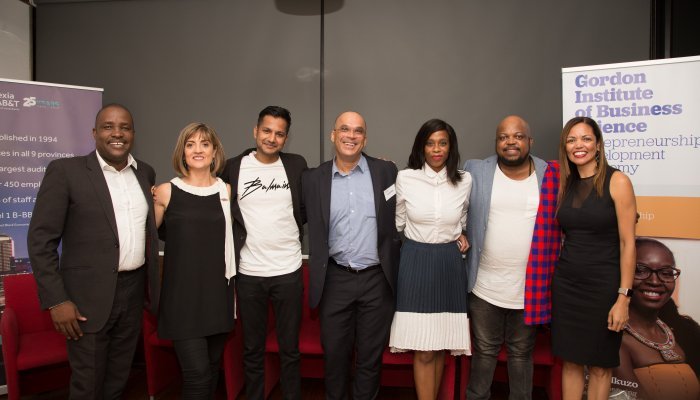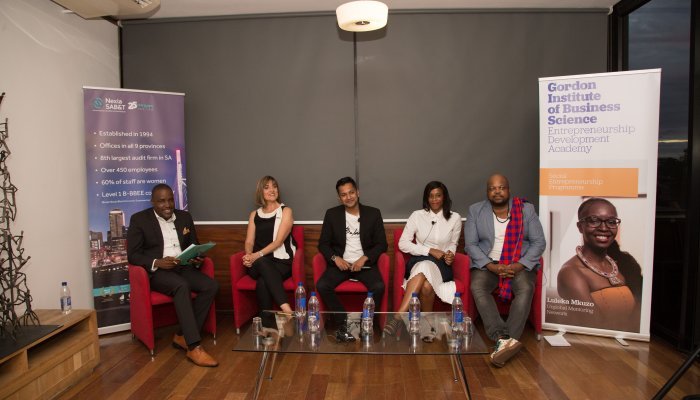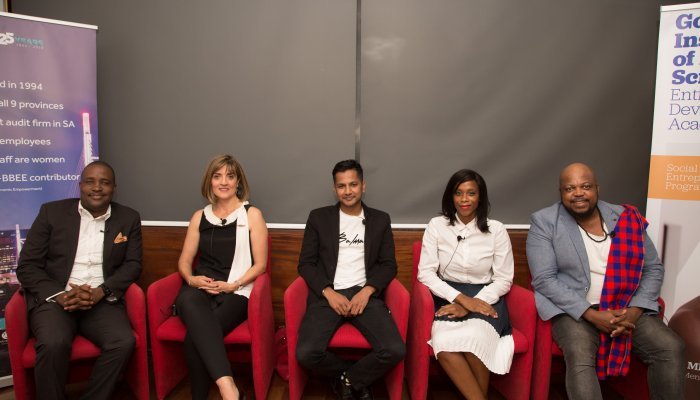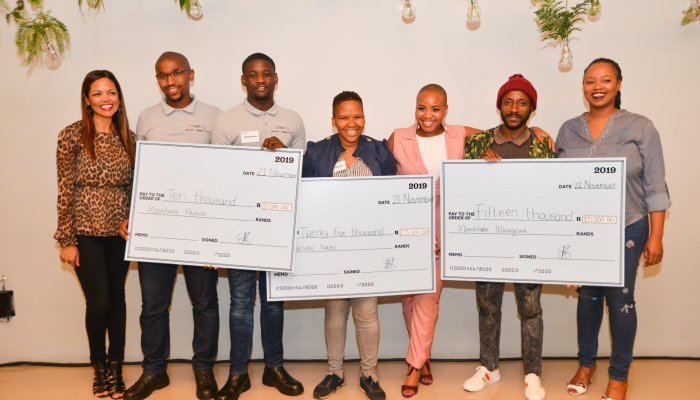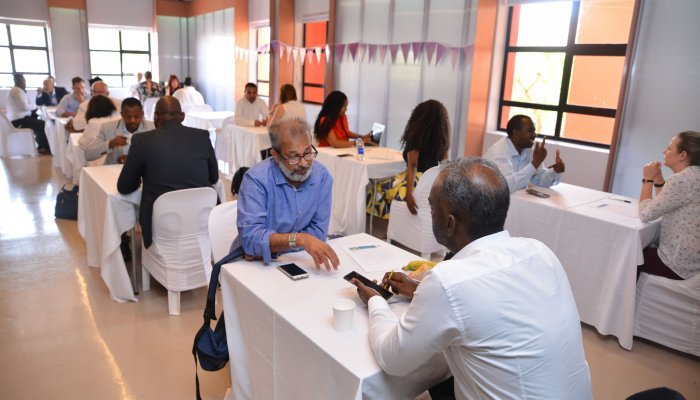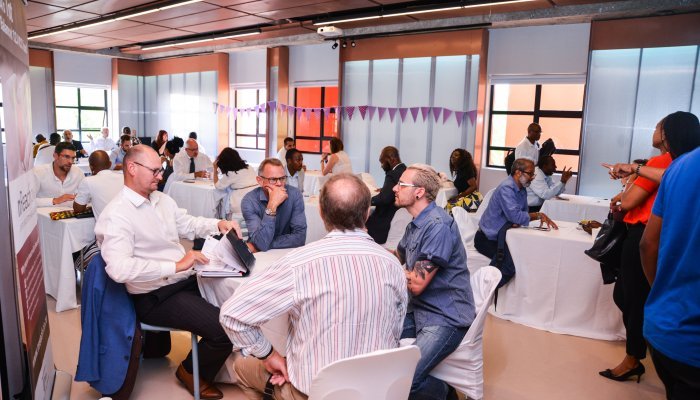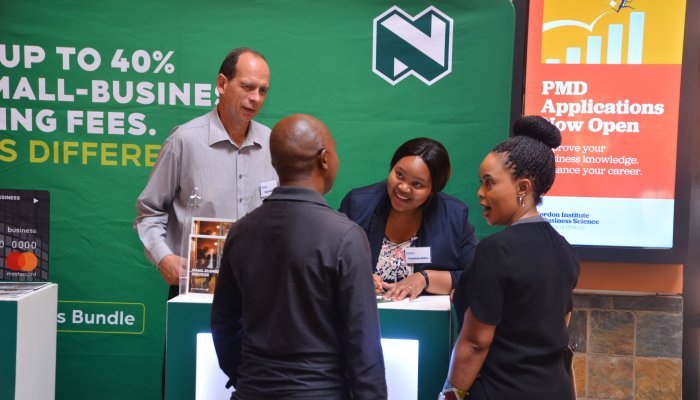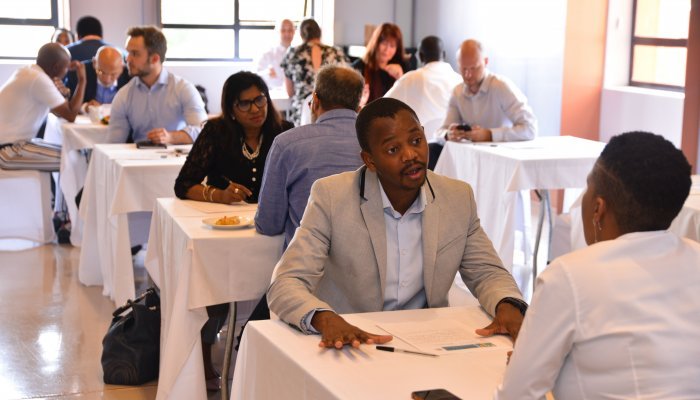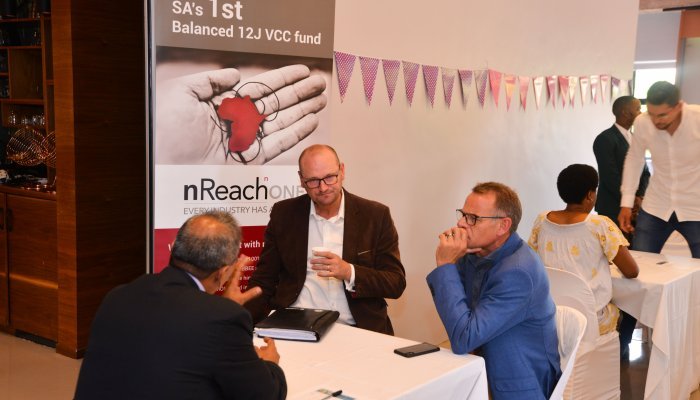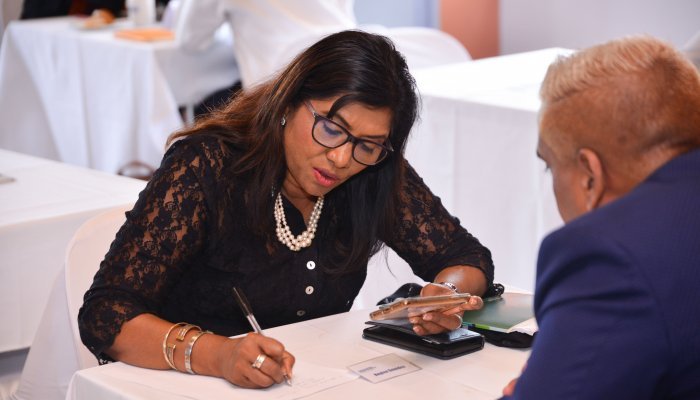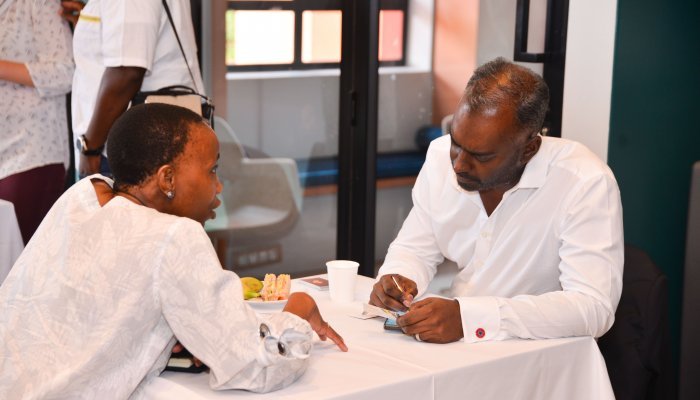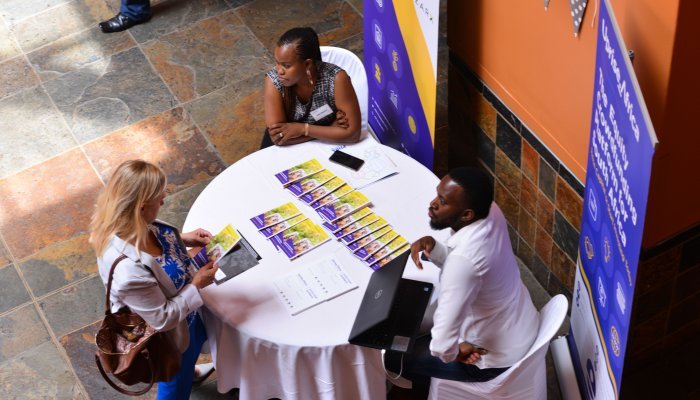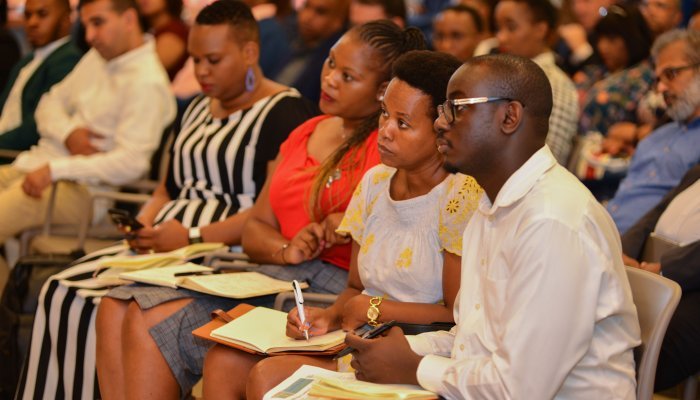The South African entrepreneurial landscape is challenging and local entrepreneurs need to get all the help they can. The Department of Trade and Industry’s new pilot website – the Biz Portal – now enables entrepreneurs to register a business within a day for just R175, but what it doesn’t do is tackle all the red tape, help find coaches and mentors, improve business acumen and skills, connect with the necessary networks and support, or secure access to much-needed funding.
That is where the GIBS Entrepreneurship Development Academy (EDA) comes in. Headed by Miranda Simrie, the academy specialises in unpacking the many elements of entrepreneurship and enables business owners to appreciate the ins and outs of the environment in which they work, thereby empowering them to thrive and grow.
Throughout the year, the EDA offers tailor-made courses on entrepreneurship, runs programmes matching entrepreneurs to coaches and mentors, holds short courses and programmes that address challenges facing entrepreneurs, and hosts forums, discussions and debates. At the centre of these activities is a push to bring stakeholders together to discuss issues and come up with creative solutions to the challenges facing entrepreneurs.
In addition to this holistic offering, the EDA pushes for a new approach to entrepreneurship in South Africa. This, says Simrie, means helping entrepreneurs to embrace the reality of starting, failing, and then starting again. In a country which is acknowledged to be the most economically unequal country in the world – with Statistics SA putting the country’s official unemployment rate at above 29% and youth unemployment at a staggering 55% – entrepreneurs need to be nurtured and encouraged to keep trying.
... the EDA pushes for a new approach to entrepreneurship...
Much-needed inspiration for this is found in events like the EDA’s Nexia SAB&T Speaker Series where successful entrepreneurs share insights around their businesses, highlight tips and successes, and talk frankly about challenges. “The discussions are always inspiring, raw, real events, as some of South Africa’s most celebrated entrepreneurs share their stories of often humbling setbacks and their ultimate success,” says Simrie.
Social change
To ensure that everyone can benefit from the EDA’s offering, the academy works with entrepreneurs at various stages in their businesses, from start-up to high-impact growth as well as those operating in the informal sector. But the EDA has a special focus on social entrepreneurship. “The EDA creates an environment to support small and growing enterprises. We want to build and regenerate entrepreneurial spirit while encouraging a culture of innovation and social change,” explains Simrie.
One of the EDA’s big initiatives, the Festival of Ideas competition, is held in partnership with the SAB Foundation and is aimed specifically at budding social entrepreneurs. In its sixth year, the Festival of Ideas not only encourages entrepreneurs to put their ideas into action, but also gives them valuable help when it comes to applying and pitching for funding. Simrie acknowledges that even though there are many competitions for start-ups, the EDA has a very specific mission in mind. “What we’re missing is a celebration of the early-phase thinking, the idea generation that is associated with risk and impossibility. The Festival of Ideas is about developing confidence among aspirant social entrepreneurs to pitch new ideas aimed at addressing various social, environmental and health challenges,” she explains.
In 2019, the EDA tried something new when it hosted its first Funding Fair. Born out of the EDA’s realisation that the funding space should be demystified, this free event saw the academy hosting 11 funding companies and five mentors. The day began with a panel discussion where funders unpacked funding options available to entrepreneurs at various stages of their businesses and how these could be accessed, followed by a match-making session where entrepreneurs were given the opportunity to have a 10-minute session with funders and/or mentors in order to get more personalised help.
“Entrepreneurs found this one-on-one interaction with funders and mentors extremely beneficial, as it is often difficult for entrepreneurs to get this sort of personalised interaction, especially from such a variety of companies, all with different funding solutions,” explained EDA marketing manager, Faiza Mallick.
A holistic approach, coupled with a focus on learning, is the EDA’s attempt to put the theory behind entrepreneurial success into action. The aim is to inspire entrepreneurs by creating a space for engagement, encouragement and collaboration.
To find out more visit the EDA webpage on the GIBS website https://www.gibs.co.za/eda.
Winning with The Festival of Ideas
With a chance to win part of the R50 000 available for the most intrepid social entrepreneurs, 274 applicants entered the 2019 Festival of Ideas. Of those, 50 were selected to attend the Festival of Ideas workshop in November 2019. The workshop’s objectives were to help entrepreneurs better understand the funding landscape, equip them with the tools to effectively pitch for funding, give them a platform to practice pitching, and then finally inspire them with insights from previous Festival of Ideas winners.
At the end of the workshop, 12 finalists were selected to pitch their ideas to a panel of judges at the final competition held on 21 November. Three of the finalists stood out as worthy winners on the day:
· Third place: Mzokhona Maxase, whose company makes shoe polish from the waste produced in the tyre recycling process. He was awarded R10 000.
· Second place: Mamkhele Msongelwa took home R15 000. His eco-cooler for the agricultural and restaurant sector is awaiting SABS approval.
· First place: Nomahlubi Nazo, who is trialling her range of skincare products for use in hospitals around the country. Her products are made from local ingredients including indigenous herbs. She walked away with the top prize of R25 000.
The Entrepreneurship Development Academy in numbers
The proof of the impact the EDA is having on South Africa’s entrepreneurial landscape is captured in a snapshot of the numbers:
2,300+ programme participants to date
3,600 is the number of businesses being impacted by the EDA
R3.2 billion total value of revenue from the businesses that the EDA has worked with
9 is the number of provinces that have benefitted from EDA participation
50% of EDA participants are 35 years of age or younger
54% female participation
86% Asian, black, coloured and Indian participation
45% increase in participant revenue and job impact one year after working with the EDA
30% increase in staff compliment one year after EDA participation
10 is the number of years the EDA’s Social Entrepreneurship programme (SEP) has been running
600+ Social Entrepreneurship Programme delegates
Tips when pitching for funding
Need funding? Here are a few tips gleaned from the Festival of Ideas final:
· Know your audience. Understand the priorities of funders and tailor your pitch to address their specific concerns.
· Be clear about your business model and strategy. Convey this succinctly to your investors.
· Know how you are going to make money from your idea and communicate that clearly.
· Be prepared to answer questions about operational issues including protection of intellectual property, required certifications, and how you plan to scale your business.
· Know what you are going to use your funding for if you get it.
· Be confident. Practice your pitch in front of a mirror. Your confidence will give investors confidence.
... it is often difficult for entrepreneurs to get this sort of personalised interaction...
Tips for succeeding against the odds
· If you have an idea that you are passionate about, stay true to it. Do not let naysayers put you off course.
· There will always be challenges along the way, if you believe in your dream, you have to keep going.
· Listen to advice. Remain 100% committed to where you are going but be flexible in the execution of your strategy.
· Don’t be afraid to fail. Most success stories are preceded by stories of failed attempts.
· Understand the environment/market in which you are operating. Tailor your business/solutions to suit that particular market.


